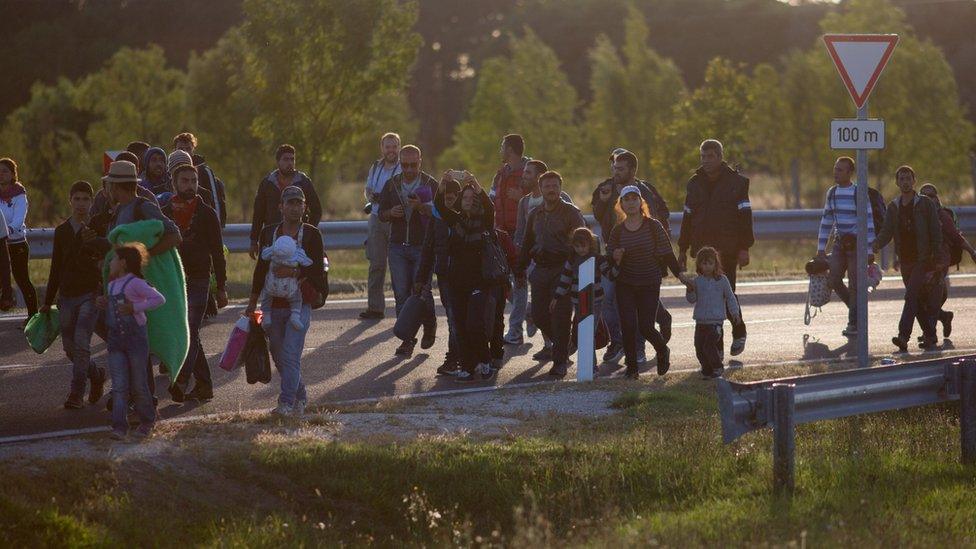Refugees' journey to the Eisteddfod's Abergavenny Maes
- Published
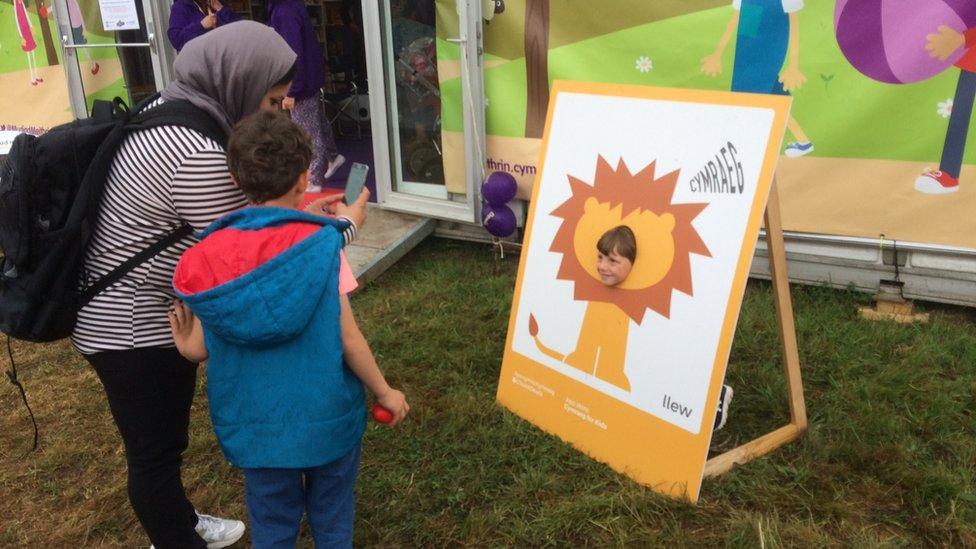
Most National Eisteddfod visitors would have travelled a couple of hours from north or west.
But for others, the journey has been longer, more traumatic, and one that could have claimed their lives had they not been so fortunate.
For Mogdad Abdeen, from Khartoum in Sudan, his visit to the Maes in Abergavenny, Monmouthshire, is confirmation a life snatched away from him can finally begin again in a new country.
He was among 24 refugees and asylum seekers from countries such as Pakistan and Iraq brought to the event by Oxfam Cymru to give them a taste of Welsh culture.
Currently, there are 3,000 people in Wales who have fled war and persecution, including 78 from Syria - but the charity said the UK should take many more.
For Mr Abdeen, now 34, he completed university and had what he believed was a "bright future" as an engineer until civil unrest in the country spread to the capital.
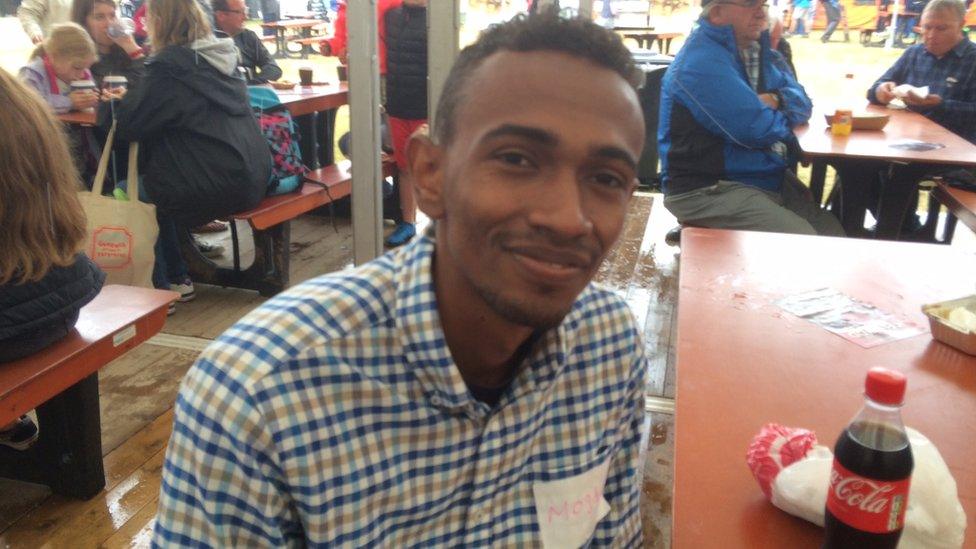
Mogdad Abdeen is awaiting a decision on his refugee status
"I was an activist when I was a student, campaigning, trying to protect rights and criticising the government for bombing [province] Darfur," he said.
"The dictatorship didn't want such freedoms. They were tracking people and I was worried I would be put in jail and then killed which is what happened to others like me."
His uncle made arrangements and eight months ago, Mr Abdeen began what he described as "a horrible journey", travelling to Egypt and spending seven days on a small boat on the Mediterranean Sea before making it to Italy and moving through France.
"I arrived in the UK from Calais and went to the police station and they told me I would be safe here," he said.
"At first I went to London but it was busy. I like Cardiff, it is multi-cultural and I can ride a small bicycle around the city. I am awaiting a decision on my refugee status. I hope I get it so I can start my life again."
While all 22 Welsh local authorities have agreed to take refugees, the difficulty comes in matching families to an area that best matches their needs.
For example, somebody from a city may feel isolated in parts of rural Powys or Ceredigion.
'Not good enough'
The majority visiting the Eisteddfod with Oxfam were from Swansea and Cardiff and while they were happy to show them around, there was a sense of frustration the numbers here are not greater.
"There are currently millions of people on the move in the world, fleeing war and extreme poverty. The UK has taken in less than 1% despite being the sixth wealthiest nation in the world," Kirsty Davies-Warner, head of the charity in Wales, said.
"We could do more and should be a nation of sanctuary. In 1914, Wales took in 4,500 Belgian refugees. While they later went home, they left so many cultural benefits. We should have at least that many here now.
"There are still empty houses and school places. It's not good enough to say 'sorry we don't have room'. We took so many in 1914 in recognition that it could one day be us."
Former Prime Minister David Cameron committed the UK to take 20,000 refugees from war-torn Syria over the next five years.
But Ms Davies-Warner said that number should be at least double, with Oxfam campaigning ahead of a conference of world leaders in September.
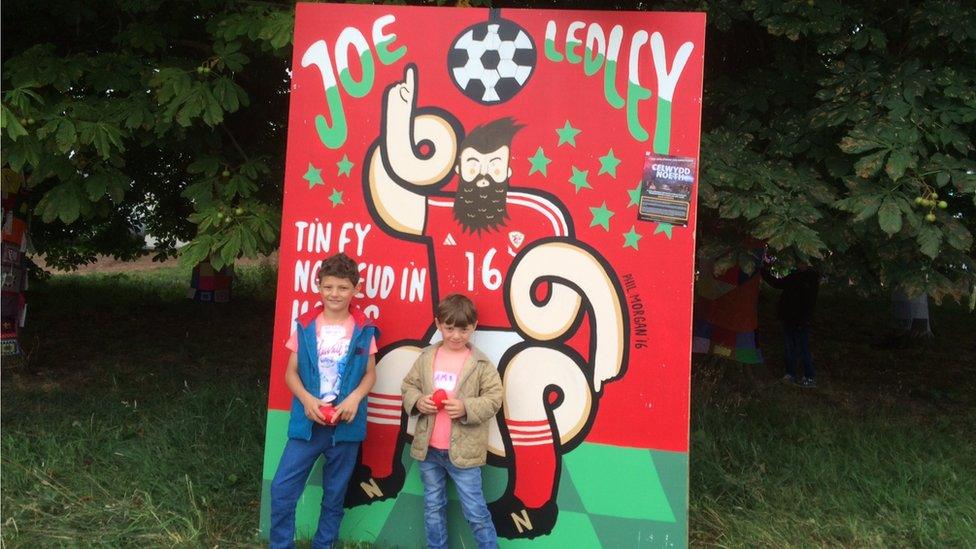
Rakan and Amr have become fans of Welsh football since arriving in Wales
After arriving on the Eisteddfod site, the refugees firstly had a Welsh taster session, where they learnt a few basic phrases such as "bore da" (good morning) and "sut dy chi?" (how are you?).
As the group was instructed how to count to 10, Rakan, nine, shouted out the answers ahead of the tutor.
Along with his mother May Alrariees, 32, and brother Amr, six, he has only been in Cardiff six months, yet has picked up some Welsh from school and was an enthusiastic fan of the Wales football team at Euro 2016.
The family arrived in the country six months after dad Mohammad, 38, fled their home city of Homs in Syria.
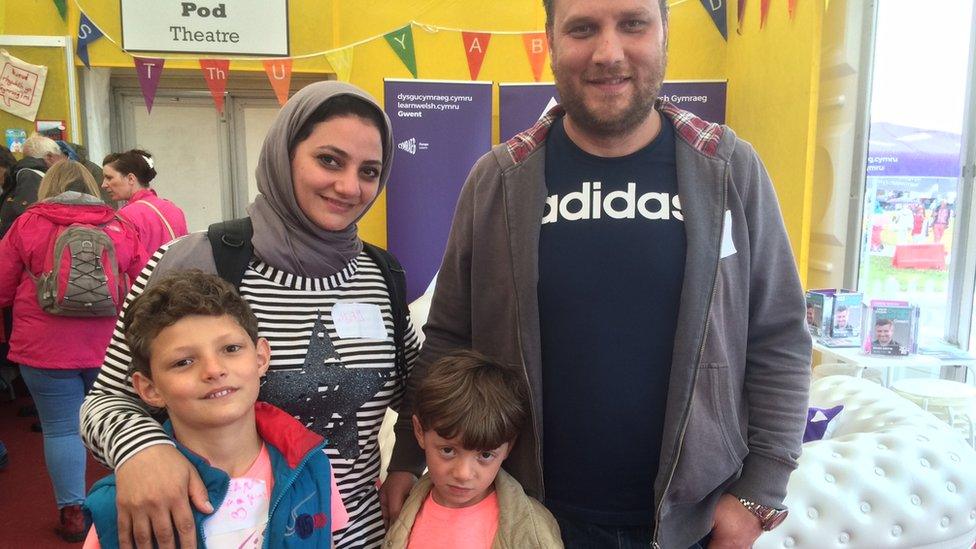
The Alrariees family are settling into their new life
"It was so bad, all the country was destroyed by fighting. There is nothing left now. I just got on an airplane and flew to London, where I got help," the former sales manager said.
His wife, a civil engineer, used to sit at home in fear every day when he went to work.
"It was so frightening with the sound of bombs in the distance all day," she said.
"I couldn't send the children to school, it was too dangerous for them to play outside. They lost their freedom."
While they were able to join Mr Alrariees in Cardiff, they still fear for their parents and family who still live in their home city.
"But I like Cardiff. It feels like my Homs, it is very similar with the weather, the green areas, the kindness of the people," said Mrs Alrariees.
While the couple look for work in their new city, they received words of encouragement from First Minister Carwyn Jones, who met the group at the Eisteddfod.
"Many asylum seekers and refugees who come to Wales have had their lives torn apart by war, persecution or natural disaster," he said.
"We are committed to helping them rebuild their lives."
- Published25 April 2016
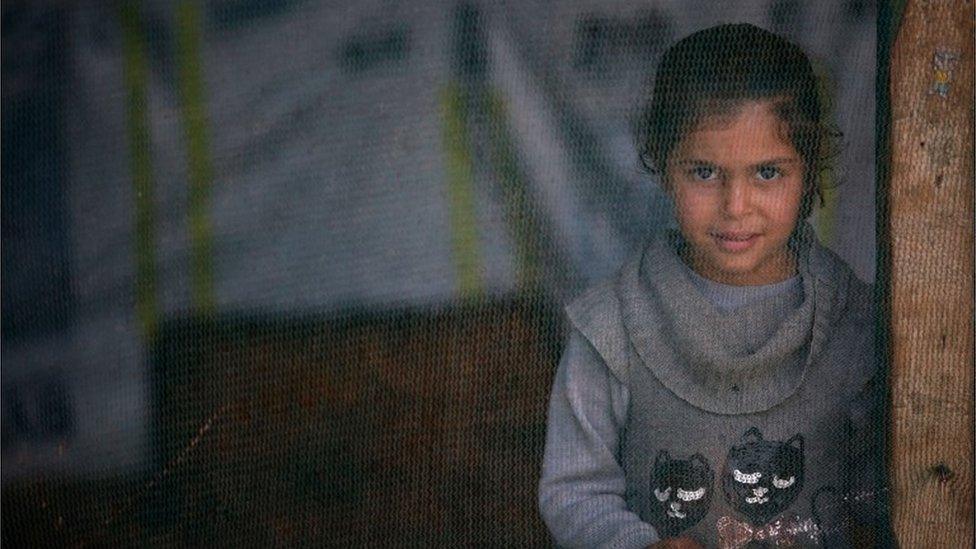
- Published5 June 2016
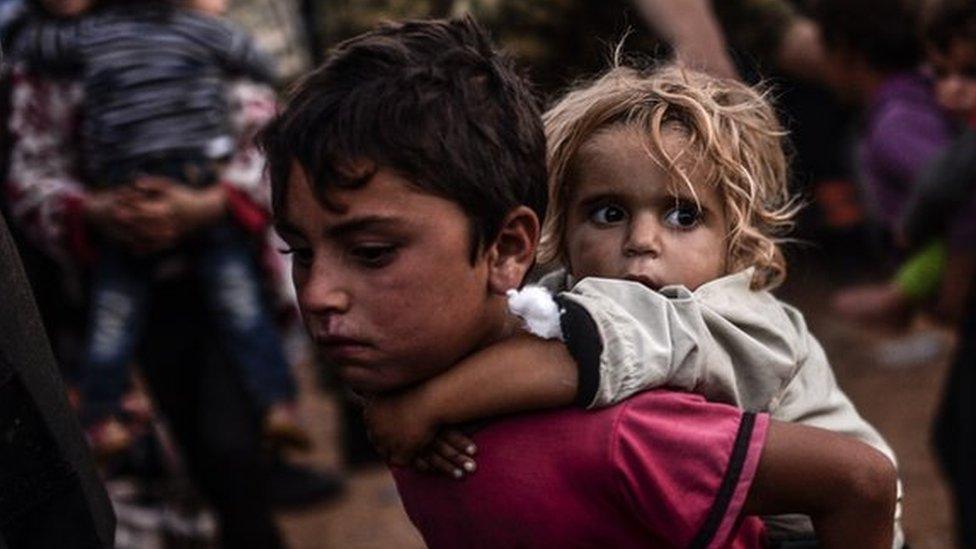
- Published20 September 2015
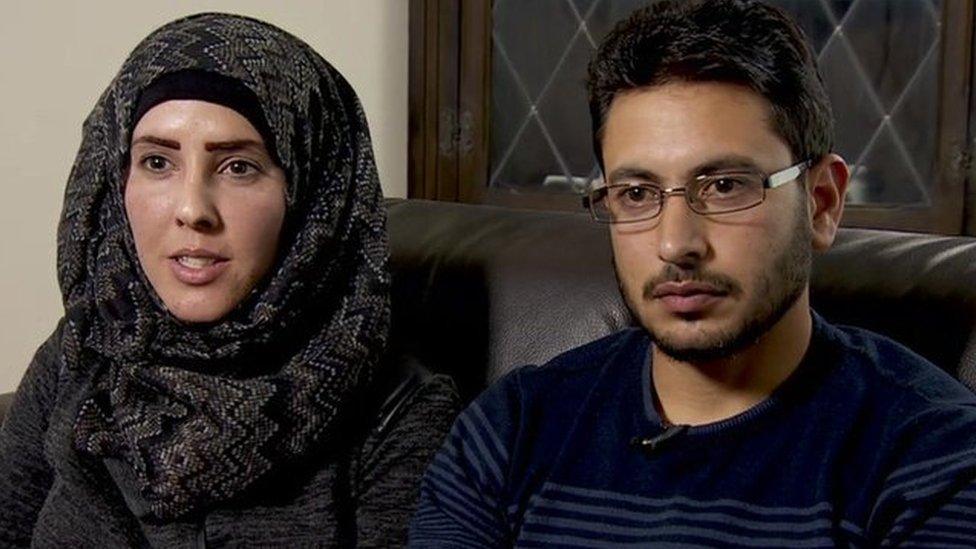
- Published24 November 2015
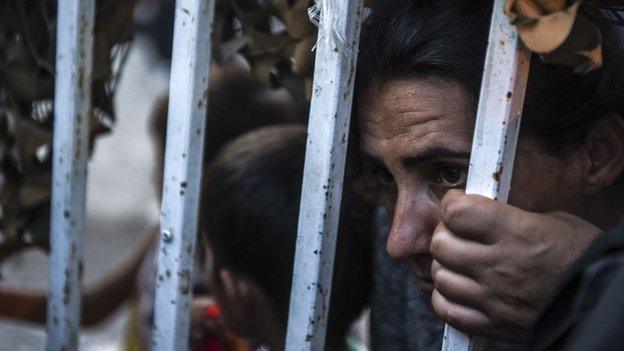
- Published22 October 2015
